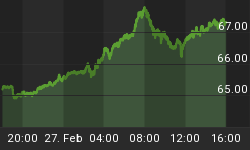While there is a chicken-and-egg debate about which comes first, historically there has been a strong relationship between economic conditions and the national psyche. In other words, when Main Street is in trouble, people feel troubled and vice versa. That is one reason why, for example, forecasters pay close attention to consumer sentiment. If Americans are uncertain and unsettled, they are inclined to save for a rainy day and less keen to splash out on anything other than the bare necessities.
But in many respects, this relationship has gone awry. For instance, polls clearly show that growing numbers of Americans are worried about the threat of recession, the deteriorating health of their personal finances, and the direction the country seems to be headed in. Just yesterday, in fact, a Gallup survey noted that trust in the federal government, on nearly all issues, had hit a record low. Yet many individuals continue to spend freely, despite low savings, stagnant earnings, and high levels of debt.
At the same time, the stock market, a traditional barometer of the national mood, is trading not far off its record levels. Oil, grains, precious metals, and other commodity markets are roaring amid rampant speculation. Bankers are still keen to do deals, expand balance sheets, and lend money at an aggressive pace despite all the recent turmoil in credit markets. As far as Wall Street is concerned, few seem worried in the least about warning signs that suggest the good times are nearing an end.
What accounts for this current anomaly, a kind of bipolar disorder? Some might argue that it's the inevitable byproduct of decades of manipulation and distortion of the money supply, interest rates, financial markets, the social contract, the legal system, societal mores, public opinion and more. Others might say it represents a fleeting lapse in the national consciousness, like a daydream in the middle of the day. Some might wonder if it reflects a collective last-gasp panic to stay afloat before the economic tide rushes out.
Whatever the reasons, the pattern of the past suggests that current circumstances won't remain as they are. Either the dour social mood will catch up with developments in the financial realm, or economic and market conditions will soon stage an abrupt and dramatic reversal to the downside. Given the serious structural imbalances that exist nowadays and such unpleasant realities as the interest compounding effect, which will turn already large piles of borrowed money into towering infernos of unpayable debts, odds are that it won't be the former.















